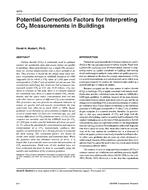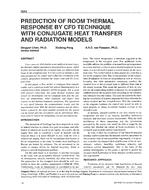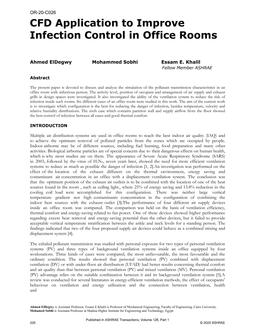This product is a zip file that contains files that consist of PowerPoint slides synchronized with the audio-recording of the speaker, PDF files of the slides, and audio only (mp3 format) as noted.
This session aims to highlight smart indoor environmental modeling approaches. With the advances in computational and storage resources, it appears a 3D modeling is the first starting point to model indoor environments. However, a 3D modeling approach may not be the best solution to understand the underlying airflow and thermal mechanisms in indoor environments. Therefore, this session will demonstrate computational cost effective real-world case solutions to (i) model a building for natural ventilation,(ii) evaluate a gas turbine enclosure cooling system eductor, (iii) demonstrate cross ventilation, and (iv) estimate SARS-CoV-2 airborne transmission risks in buildings.
- A Simplified Network Flow Model of a Building Using an Atrium for Natural Ventilation< /br>Duncan Phillips, Ph.D., P.E., Member, Rowan Williams Davies & Irwin, Guelph, ON, Canada
- Evaluation of a Gas Turbine Enclosure Cooling System Eductor with 2D CFD< /br>Duncan Phyfe, Associate Member, Alden Research Laboratory, Holden, MA
- Sub-Zonal Approximation of Natural Ventilation Performance in a Simple Building Scenario< /br>James Lo, Ph.D., Member, Drexel University, Philadelphia, PA
- Estimating Sars-Cov-2 Airborne Transmission Risks in Multizone Buildings By Contam< /br>Liangzhu (Leon) Wang, Ph.D., P.E., Member, Concordia University, Montreal, QC, Canada
Citation: ASHRAE 2021 Virtual Seminar, Extended Abstracts
Product Details
- Published:
- 2021
- File Size:
- 1 file
- Product Code(s):
- D-VCA21Sem78


